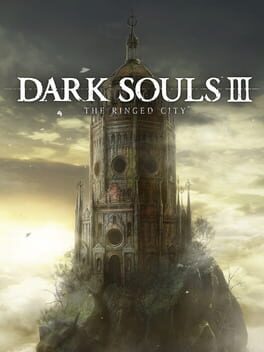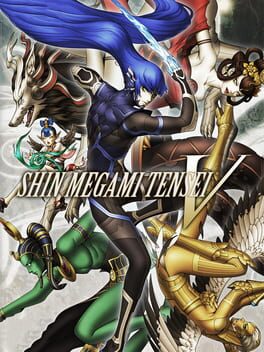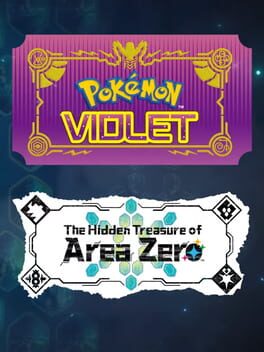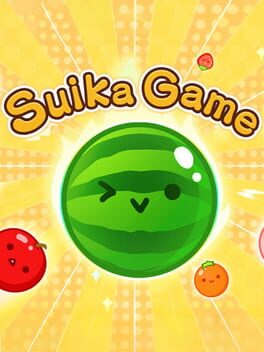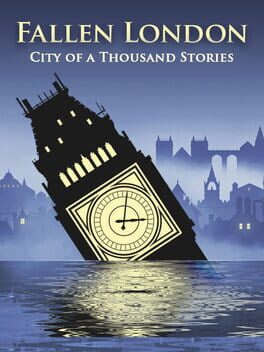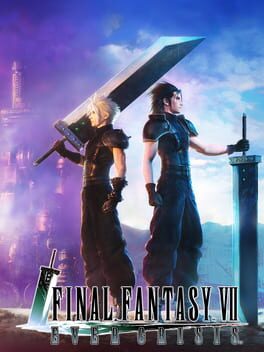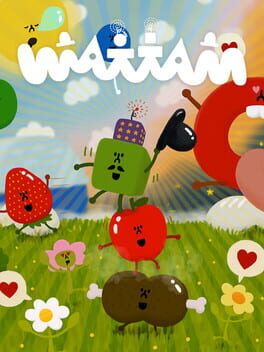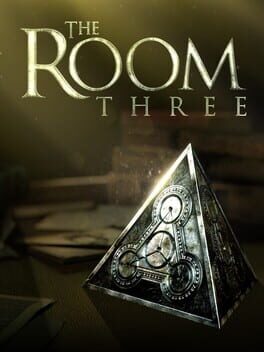beecass
I had never played a gacha game before Nier Reincarnation, and I likely won't play one again - my experience with this thing, which I'm reluctant to even call a game, exists as a weird peek into a world I willfully don't understand and hopefully never will unless a couple of things go REALLY wrong in my life. I dropped back into Reincarnation after hearing it was being shut down, and they were giving you everything you needed to make it to the end of the story for free. I had an almost allergic reaction to it the first time I played, but I was grimly fascinated in what a game like this looks like in its dying days.
I really like Nier. I like its characters, its music, its strange approach to game genre, the measured barren minimalism of its 3d spaces - Nier Reincarnation takes all of the things I like about Nier and uses them in service of what amounts to a slot machine for perverts. The way in which Reincarnation wears the glamour of something loved and familiar in service of what's essentially gambling is almost grotesque - like a child snatched by a changeling, a monster wearing their skin.
If you're new to gacha games like I was, all the things the game does in service to cultivating a long term audience of whales seem completely insane. There is a colossal amount of math happening at all times, all in service of nothing - numbers get into the hundreds of thousands, yet the game must be frictionless enough at all times to be played via automation. Each story chapter consists of ten battles, but the game gives you the means to skip up to 100 encounters a day for free. There are fourteen discrete categories of upgrade material. The most expensive premium currency package on the in-game store was 150 dollars. To look into this game's community, a relatively small one by the standards of these kinds of games, is like looking into a parallel dimension where value is completely decoupled from time and reality. Upgrade mats, grinding for bookmarks, pity pulls - none of these words are in the Bible. There's a dark engine at the heart of Reincarnation, of almost genius construction, and its sole function is to obfuscate the fact there's absolutely nothing here. The game plays itself, and gives you tools to skip the playing. Nier Reincarnation is not a video game - it is a magician waving their hand while the other sneaks into your pocket.
There is, despite everything, something interesting and almost compelling inside Nier Reincarnation, separate from grim academic fascination with its genre - the art direction, soundtrack, sound design, and voice acting are all beautiful, better than any of this deserves. The writing, which takes the possible funniest parts of Nier - the pointlessly tragic weapon stories - and places them center stage, is mostly really dumb! In one of my favourite stories, a young soldier hunts down the guy who killed his parents only to find out that the murderer was his biological dad and he'd been cradle snatched as a baby. The little girl who's ostensibly the main character of the story is part of an invented caste of peasants called "goat people". A son tries to kill himself to give his mother his heart for a transplant, yet she dies before he can bring himself to do it. I still mostly liked the pulpy melodrama, and the direction they go in this last chapter - finally linking Reincarnation to the previous two games in a meaningful way - is pretty cool! There's a lot of talent on display here, and in another version of reality present in The Cage, all these clearly very skilled people got to make a real video game instead.
At the end of the game they put up a "THANK YOU FOR PLAYING" screen and then change it to "THANK YOU FOR PRAYING". What the fuck is that, that's nothing
I really like Nier. I like its characters, its music, its strange approach to game genre, the measured barren minimalism of its 3d spaces - Nier Reincarnation takes all of the things I like about Nier and uses them in service of what amounts to a slot machine for perverts. The way in which Reincarnation wears the glamour of something loved and familiar in service of what's essentially gambling is almost grotesque - like a child snatched by a changeling, a monster wearing their skin.
If you're new to gacha games like I was, all the things the game does in service to cultivating a long term audience of whales seem completely insane. There is a colossal amount of math happening at all times, all in service of nothing - numbers get into the hundreds of thousands, yet the game must be frictionless enough at all times to be played via automation. Each story chapter consists of ten battles, but the game gives you the means to skip up to 100 encounters a day for free. There are fourteen discrete categories of upgrade material. The most expensive premium currency package on the in-game store was 150 dollars. To look into this game's community, a relatively small one by the standards of these kinds of games, is like looking into a parallel dimension where value is completely decoupled from time and reality. Upgrade mats, grinding for bookmarks, pity pulls - none of these words are in the Bible. There's a dark engine at the heart of Reincarnation, of almost genius construction, and its sole function is to obfuscate the fact there's absolutely nothing here. The game plays itself, and gives you tools to skip the playing. Nier Reincarnation is not a video game - it is a magician waving their hand while the other sneaks into your pocket.
There is, despite everything, something interesting and almost compelling inside Nier Reincarnation, separate from grim academic fascination with its genre - the art direction, soundtrack, sound design, and voice acting are all beautiful, better than any of this deserves. The writing, which takes the possible funniest parts of Nier - the pointlessly tragic weapon stories - and places them center stage, is mostly really dumb! In one of my favourite stories, a young soldier hunts down the guy who killed his parents only to find out that the murderer was his biological dad and he'd been cradle snatched as a baby. The little girl who's ostensibly the main character of the story is part of an invented caste of peasants called "goat people". A son tries to kill himself to give his mother his heart for a transplant, yet she dies before he can bring himself to do it. I still mostly liked the pulpy melodrama, and the direction they go in this last chapter - finally linking Reincarnation to the previous two games in a meaningful way - is pretty cool! There's a lot of talent on display here, and in another version of reality present in The Cage, all these clearly very skilled people got to make a real video game instead.
At the end of the game they put up a "THANK YOU FOR PLAYING" screen and then change it to "THANK YOU FOR PRAYING". What the fuck is that, that's nothing
I don’t know if this is the best version of Final Fantasy VII, but it certainly is the most!
Where Remake strove to create a focused and authentic sense of place with its reimagining of Midgar, Rebirth feels like it’s shooting to recreate a different part of what defines a PSX era Final Fantasy - this has the original game’s tonal mania, a billion exhaustively realised minigames of varying quality, and a bunch of busy mechanics with intended and unintended interactions capable of breaking the whole game wide open.
Rebirth builds upon and improves all the things I liked about Remake, while also introducing a glut of new wrinkles and mechanics that turn a relatively streamlined action RPG into a Xenoblade enjoyer’s delight - with all the baggage that brings with it. The sidequests are so much better than they were in the previous game,but the open world activities are mostly pretty bad! The overworld is otherwise really compelling in its own right, and didn’t need a bunch of extraneous shit added to it to justify its existence - the Ubisoft style towers that mark all points of interest are particularly egregious when every activity in the open world already has a visual cue that guides you to it. If they’d taken out maybe half of the open world content and made an effort to make the stuff that remained feel a bit more unique from region to region, they could have had something pretty special - but the checklist of activities across the map doesn’t really interact with any of the stuff in the game that’s actually good. I still found myself doing heaps of Chadley’s bullshit despite thinking most of it sucked, because I do really enjoy the act of just hanging out in this setting and spending time with the core cast of characters - which proves that the structure of the quests is at least tolerable, or that with enough charisma I can be tricked into engaging with pretty much any old slop.
The actual beats of Rebirth’s plot are just as tenuously strung together as this stretch of the original game - with often very little reason given for the characters to be travelling from one place to the next - but the way the the cast are brought to life is so loving and detailed that you find yourself excusing every leap they make to get to where the story demands. Rebirth understands that we’re here because we love these guys, and every moment that’s in service of putting these characters through the wringer or bringing them closer together is like magic. There are maybe too many buds towards the end of the game for them to juggle elegantly with the same grace as the playable cast, but this is at its core a game about hanging out with people you already like, and it succeeds way more often than it stumbles.
The last few hours of the game are completely deranged - the landing is loud, messy, and both deliberately and unintentionally struggles for cohesion. The story feels the absence of its own conclusion more keenly than its predecessor, and I’m left wondering once again as the credits roll if any of the new metatextual plot elements are additive, or only serve to muddy the strong emotional beats of the source material.
At multiple times during my playthrough i yelled “fuck yes!” and at others I groaned “this sucks!” which is about as Final Fantasy VII as you could ask for!
Bow wow wow
Where Remake strove to create a focused and authentic sense of place with its reimagining of Midgar, Rebirth feels like it’s shooting to recreate a different part of what defines a PSX era Final Fantasy - this has the original game’s tonal mania, a billion exhaustively realised minigames of varying quality, and a bunch of busy mechanics with intended and unintended interactions capable of breaking the whole game wide open.
Rebirth builds upon and improves all the things I liked about Remake, while also introducing a glut of new wrinkles and mechanics that turn a relatively streamlined action RPG into a Xenoblade enjoyer’s delight - with all the baggage that brings with it. The sidequests are so much better than they were in the previous game,but the open world activities are mostly pretty bad! The overworld is otherwise really compelling in its own right, and didn’t need a bunch of extraneous shit added to it to justify its existence - the Ubisoft style towers that mark all points of interest are particularly egregious when every activity in the open world already has a visual cue that guides you to it. If they’d taken out maybe half of the open world content and made an effort to make the stuff that remained feel a bit more unique from region to region, they could have had something pretty special - but the checklist of activities across the map doesn’t really interact with any of the stuff in the game that’s actually good. I still found myself doing heaps of Chadley’s bullshit despite thinking most of it sucked, because I do really enjoy the act of just hanging out in this setting and spending time with the core cast of characters - which proves that the structure of the quests is at least tolerable, or that with enough charisma I can be tricked into engaging with pretty much any old slop.
The actual beats of Rebirth’s plot are just as tenuously strung together as this stretch of the original game - with often very little reason given for the characters to be travelling from one place to the next - but the way the the cast are brought to life is so loving and detailed that you find yourself excusing every leap they make to get to where the story demands. Rebirth understands that we’re here because we love these guys, and every moment that’s in service of putting these characters through the wringer or bringing them closer together is like magic. There are maybe too many buds towards the end of the game for them to juggle elegantly with the same grace as the playable cast, but this is at its core a game about hanging out with people you already like, and it succeeds way more often than it stumbles.
The last few hours of the game are completely deranged - the landing is loud, messy, and both deliberately and unintentionally struggles for cohesion. The story feels the absence of its own conclusion more keenly than its predecessor, and I’m left wondering once again as the credits roll if any of the new metatextual plot elements are additive, or only serve to muddy the strong emotional beats of the source material.
At multiple times during my playthrough i yelled “fuck yes!” and at others I groaned “this sucks!” which is about as Final Fantasy VII as you could ask for!
Bow wow wow
2021
I really enjoyed the first few hours, but after your first trip to Da’at you’ve basically seen everything the game has going on. It’s just worse and harder to see configurations of the same stuff, where moving through the world and fighting basic enemies starts to take increasingly longer without much added in terms of strategy or difficulty - there’s a lot of nice quality of life features happening, but they seem to be offset by it taking a calendar year to level up and everything taking too long to kill. Turn press is still great, animations and art direction are beautiful as always, but without any sort of strong narrative or interesting characters to grab a hold of, everything feels kind of directionless! This game is shooting for Nocturne, but has none of the desolation or the weird assholes that made it good in the first place. My kingdom for a fucked brutalist hallway or a dipshit in a stupid hat
After rolling credits on this and playing the epilogue, I find it weird that they even called this The Hidden Treasure of Area Zero in the first place - I really enjoyed the last act of Scarlet & Violet (even if I thought getting there was kind of a slog), and the DLC doesn’t really do anything with the interesting and weird stuff the game starts dropping on you in its last couple of hours. What you get instead is pretty compelling in its own right though, and the core characters that are introduced throughout the two new chunks of game are so full of personality and love that it’s hard not to get caught up in a package that’s otherwise just fine.
Kitakami and Blueberry Academy are much fuller and better realised than Paldea, but the environment design is still the same kind of weirdly frictionless and formless slop that makes it really hard to ever feel like you’re on an adventure. The Pokémon battles in The Indigo Disk are genuinely challenging and dynamic, maybe the most fun the series has ever been - but this is largely because they’re centred around Double Battles instead of the usual Singles format. The more interesting and strategic demands of the doubles format unfortunately brought to mind a lot of the weaknesses of the legacy core mechanics and math happening behind the scenes which has stayed largely untouched since 2003 - why can’t the game as normal be this fun? For everything neat the DLC does, the bad bones of the base game exert their presence at every moment - there’s mostly the same good things and bad things that there were in the core game at launch, so if you already thought this sucked there’s probably nothing here to convince you otherwise. I will still buy the next one without question because I am a horrible little hog snort sniff slorp
Kitakami and Blueberry Academy are much fuller and better realised than Paldea, but the environment design is still the same kind of weirdly frictionless and formless slop that makes it really hard to ever feel like you’re on an adventure. The Pokémon battles in The Indigo Disk are genuinely challenging and dynamic, maybe the most fun the series has ever been - but this is largely because they’re centred around Double Battles instead of the usual Singles format. The more interesting and strategic demands of the doubles format unfortunately brought to mind a lot of the weaknesses of the legacy core mechanics and math happening behind the scenes which has stayed largely untouched since 2003 - why can’t the game as normal be this fun? For everything neat the DLC does, the bad bones of the base game exert their presence at every moment - there’s mostly the same good things and bad things that there were in the core game at launch, so if you already thought this sucked there’s probably nothing here to convince you otherwise. I will still buy the next one without question because I am a horrible little hog snort sniff slorp
2021
2020
Picked this up after hearing “Cyberpunk is good now” and hey, it is! It probably was always at least a little bit good, but the extra time in the oven has made it into something pretty special. Does the eventual arrival of a genuinely compelling piece of art retroactively correct the way the people responsible for creating this thing have been treated by their employers? Probably not! My ideal world for artists and technical staff is probably one where less games like this get made, but this is maybe the best case scenario for what a gigantic AAA game like this looks like. I’ve got nothing to really add that hasn’t been articulated better by someone else over the last three years, but my really complicated feelings about this thing and the way it was made have coalesced mostly into positivity.
I played this after falling off Starfield - a game which made me wonder if I just disliked big-huge immersive RPGs and they just weren’t for me anymore - and I ended up falling in love pretty much immediately. They’re very different beasts, but I really prefer the density and friction of Cyberpunk’s approach to this type of game compared to Starfield’s compartmentalised slippery procgen. Night City feels big, but most importantly, curated - even small encounters and sidequests feel imbued with intention. The microstories on offer can vary wildly in quality, but in each one you can feel the touch of a human’s fingerprints.
Unionise your workplace!
I played this after falling off Starfield - a game which made me wonder if I just disliked big-huge immersive RPGs and they just weren’t for me anymore - and I ended up falling in love pretty much immediately. They’re very different beasts, but I really prefer the density and friction of Cyberpunk’s approach to this type of game compared to Starfield’s compartmentalised slippery procgen. Night City feels big, but most importantly, curated - even small encounters and sidequests feel imbued with intention. The microstories on offer can vary wildly in quality, but in each one you can feel the touch of a human’s fingerprints.
Unionise your workplace!
2023
2009
This review contains spoilers
My first Armored Core game, and I definitely get it now. Demanding, dense, creative, relentless. As a Gunpla person, customising your little guy and making custom decals hit all the same good spots in my brain, and then actually putting your build through its paces and finding out the ways you like to play is another joyful process in itself. Storming through levels and dancing around bosses in an engine of death you’ve designed yourself gives you a sense of empowerment that other action games can only dream of - this is the product of a team at the peak of their craft. Every movement you make and attack you connect feels imbued with the perfect amount of weight, and it’s all in service of making you feel like the sickest cunt alive.
The rigour required from the player isn’t quite met by the game on all occasions - a few big encounters are a bit janky or feel inconsistent. In un-walled arenas, bosses will sometimes move out into areas outside of the combat zone where they can still act, while you’re left to wait around like a dipshit for them to come back so you can continue playing the video game. The camera will freak out a little bit in the more demanding fast paced encounters or against big foes, which is especially problematic if you’re playing with a close range build. After I took down the game’s first big skill check I needed to lay down because I was intensely motion sick - an experience I’ve only had playing Gravity Rush 2 in a darkened room. As such, few of the early bosses are maybe a little bit overtuned to require almost too much precision from the player - some definitely felt like they were designed to be tackled again with a late-game build for the S-Rank, and I honestly have no idea what the balancing solution for this is! It’s awesome to roll up on an old progress wall with a refined build and just completely melt them, but during my first run through the early game it often felt like every boss had way too much HP and meant you had to play the game with an athlete’s discipline to avoid a fuckup that would wipe out ten minutes of progress. Some of these early encounters where your vocabulary is a bit more limited than it will be later in the game sometimes felt like tests of patience rather than skill - you’re punished often maybe too harshly for sub-optimal play while you’re still learning the ropes. I also never really liked having to sell all my shit to afford a new toy to play with in the early chapters, as I feel the game truly shines when you have a couple of different ACs in the holster ready to tackle the unique demands of a new mission. The balance issues also skew wildly in the other direction from about the halfway point onwards, and a couple of fights that narratively should be push and pull battles are over before they can really show off what they’ve got to offer. There’s a few bosses and encounters in the closing chapters which absolutely rip and feel almost perfectly balanced - the final boss of the route I took was absolutely exhilarating even if it demanded a kind of mastery of camera control reserved only for true video game psychopaths.
As a newcomer to the series, I found it extremely interesting that the game chose to show no human faces or bodies at all outside of marketing materials - this is definitely in keeping with the game’s view that capitalism is dehumanising by design, but my personal favourite moments in mecha anime have always been when there is a show of contrast between the human body and the weapons made in their image. With From’s newly honed skills since the last Armored Core at depicting brutal human violence, I expected moments like the cockpit of the Kampfer riddled with bullets and blood, Noa emptying a shotgun into the runaway TYPE-0, Guld’s body caving in against the weight of g-forces - but in the world of Fires of Rubicon, bodies are unimportant, even unnecessary. There is no moment of clarity where the true cost of the violence you enact is weighed in blood. The game is more interested cultivating a creeping realisation that death is this world is devoid of heroics or tragedy - it’s just busywork. It’s a strikingly minimalist approach to the subject matter when all other parts of the game are about spectacle, and I don’t think it really works all of the time because said busywork of corporate murder is really fun! Every time the game took a moment to remind me that the things I were doing were ethically dubious, I didn’t really give a shit because I looked like a total baller doing it - I dismantled V.VII Swinburne in like thirty seconds and I’d do it all over again even if the magic woman who lives in my head tries to make me feel weird about it!
The core story of Coral and its supernatural abilities is less narratively compelling than the real world costs of conflicts over resources, and the notes sketched in Rubicon’s margins - of a skeleton being picked clean long after the real meat is gone - is much more fertile ground for expressing the gameplay’s themes of alienation and powerlessness than what we actually textually get by the game’s conclusion. The huge swings and setpieces were awe-inspiring, but are often morally uncomplicated in the ways most of the game is not. If Fires of Rubicon is to get a For Answer or Verdict Day equivalent, I’d really like to see it focused on a hyper-regional quagmire conflict where the largely absent non-corporate forces present in the world are maybe given a bit more to do. The world on show here is compelling enough that I’d like to see some more visible contrast between those who have skin in the game and those who order the impersonal deaths of thousands - the Rubicon Liberation front don’t really have any ideology to speak of, and we don’t get much of an indication of what they’re actually fighting for other than an amorphous idea of freedom from the corporations on the planet. Any conversation about what it means to actually live in the game’s capitalist dystopia takes a backseat to the dilemma of what humanity should do with Coral, which I believe is less interesting than unpacking the material circumstances of existing in a failed state at the whims of corporate interests. “What if fossil fuels were people” is a weird wrinkle to add to a world that’s so focused on the inherent inhumanity of capital, and I’m not sure it really works with the game’s suggestions that the mere act of survival in this unending circus of death requires you to be basically without ideology. The choice offered to you at the end of the game - allow Coral to continue to exist and maybe become something more, or burn it all to the ground - feels like too huge a shift in the setting to be offered to the player when everything else about the game has constantly stressed that the manmade systems of the world are designed on purpose to be so labyrinthine and contradictory in order to alienate the worker from the real consequences of their labor. The idea that the fate of the setting depends on the beliefs of one individual just doesn’t really make sense to me in the world that they set up in the early chapters, where the actions of lone heroes are impotent and meaningless.
Basically perfect otherwise, wake da dawg up‼️🥵🔥
The rigour required from the player isn’t quite met by the game on all occasions - a few big encounters are a bit janky or feel inconsistent. In un-walled arenas, bosses will sometimes move out into areas outside of the combat zone where they can still act, while you’re left to wait around like a dipshit for them to come back so you can continue playing the video game. The camera will freak out a little bit in the more demanding fast paced encounters or against big foes, which is especially problematic if you’re playing with a close range build. After I took down the game’s first big skill check I needed to lay down because I was intensely motion sick - an experience I’ve only had playing Gravity Rush 2 in a darkened room. As such, few of the early bosses are maybe a little bit overtuned to require almost too much precision from the player - some definitely felt like they were designed to be tackled again with a late-game build for the S-Rank, and I honestly have no idea what the balancing solution for this is! It’s awesome to roll up on an old progress wall with a refined build and just completely melt them, but during my first run through the early game it often felt like every boss had way too much HP and meant you had to play the game with an athlete’s discipline to avoid a fuckup that would wipe out ten minutes of progress. Some of these early encounters where your vocabulary is a bit more limited than it will be later in the game sometimes felt like tests of patience rather than skill - you’re punished often maybe too harshly for sub-optimal play while you’re still learning the ropes. I also never really liked having to sell all my shit to afford a new toy to play with in the early chapters, as I feel the game truly shines when you have a couple of different ACs in the holster ready to tackle the unique demands of a new mission. The balance issues also skew wildly in the other direction from about the halfway point onwards, and a couple of fights that narratively should be push and pull battles are over before they can really show off what they’ve got to offer. There’s a few bosses and encounters in the closing chapters which absolutely rip and feel almost perfectly balanced - the final boss of the route I took was absolutely exhilarating even if it demanded a kind of mastery of camera control reserved only for true video game psychopaths.
As a newcomer to the series, I found it extremely interesting that the game chose to show no human faces or bodies at all outside of marketing materials - this is definitely in keeping with the game’s view that capitalism is dehumanising by design, but my personal favourite moments in mecha anime have always been when there is a show of contrast between the human body and the weapons made in their image. With From’s newly honed skills since the last Armored Core at depicting brutal human violence, I expected moments like the cockpit of the Kampfer riddled with bullets and blood, Noa emptying a shotgun into the runaway TYPE-0, Guld’s body caving in against the weight of g-forces - but in the world of Fires of Rubicon, bodies are unimportant, even unnecessary. There is no moment of clarity where the true cost of the violence you enact is weighed in blood. The game is more interested cultivating a creeping realisation that death is this world is devoid of heroics or tragedy - it’s just busywork. It’s a strikingly minimalist approach to the subject matter when all other parts of the game are about spectacle, and I don’t think it really works all of the time because said busywork of corporate murder is really fun! Every time the game took a moment to remind me that the things I were doing were ethically dubious, I didn’t really give a shit because I looked like a total baller doing it - I dismantled V.VII Swinburne in like thirty seconds and I’d do it all over again even if the magic woman who lives in my head tries to make me feel weird about it!
The core story of Coral and its supernatural abilities is less narratively compelling than the real world costs of conflicts over resources, and the notes sketched in Rubicon’s margins - of a skeleton being picked clean long after the real meat is gone - is much more fertile ground for expressing the gameplay’s themes of alienation and powerlessness than what we actually textually get by the game’s conclusion. The huge swings and setpieces were awe-inspiring, but are often morally uncomplicated in the ways most of the game is not. If Fires of Rubicon is to get a For Answer or Verdict Day equivalent, I’d really like to see it focused on a hyper-regional quagmire conflict where the largely absent non-corporate forces present in the world are maybe given a bit more to do. The world on show here is compelling enough that I’d like to see some more visible contrast between those who have skin in the game and those who order the impersonal deaths of thousands - the Rubicon Liberation front don’t really have any ideology to speak of, and we don’t get much of an indication of what they’re actually fighting for other than an amorphous idea of freedom from the corporations on the planet. Any conversation about what it means to actually live in the game’s capitalist dystopia takes a backseat to the dilemma of what humanity should do with Coral, which I believe is less interesting than unpacking the material circumstances of existing in a failed state at the whims of corporate interests. “What if fossil fuels were people” is a weird wrinkle to add to a world that’s so focused on the inherent inhumanity of capital, and I’m not sure it really works with the game’s suggestions that the mere act of survival in this unending circus of death requires you to be basically without ideology. The choice offered to you at the end of the game - allow Coral to continue to exist and maybe become something more, or burn it all to the ground - feels like too huge a shift in the setting to be offered to the player when everything else about the game has constantly stressed that the manmade systems of the world are designed on purpose to be so labyrinthine and contradictory in order to alienate the worker from the real consequences of their labor. The idea that the fate of the setting depends on the beliefs of one individual just doesn’t really make sense to me in the world that they set up in the early chapters, where the actions of lone heroes are impotent and meaningless.
Basically perfect otherwise, wake da dawg up‼️🥵🔥
2019
I really tried to love this, but the way the game controls and handles its puzzles put me offside pretty much immediately. Everything you do in the game is introduced by a punishingly slow cutscene where the exact solution for what’s happening is presented to you, and then you do it - and doing it feels bad! The dynamic music is great but is undercut by the deeply hostile constant sounds of crying children. I'm glad people like Keita Takahashi get to keep making games, but this was so unpleasant to play
2015
This review contains spoilers
a game that hits you with the sublime tragedy of annihilation of the self for the sake of people who you might never see, and then makes you shoot your wife six times to upgrade your shirt
a game built upon and in conversation with pasts both real and imagined, that wordlessly erases an entire culture from its world
a game that breathlessly commands you to explore a grand open sky and then causes your plane to explode after ninety seconds
it’s sort of a mess! game goes crazy! i loved it from the first second and it sucked me off the whole way
a game built upon and in conversation with pasts both real and imagined, that wordlessly erases an entire culture from its world
a game that breathlessly commands you to explore a grand open sky and then causes your plane to explode after ninety seconds
it’s sort of a mess! game goes crazy! i loved it from the first second and it sucked me off the whole way
![NieR Re[in]carnation: The People and the World](https://images.igdb.com/igdb/image/upload/t_cover_big/co7zfb.jpg)
